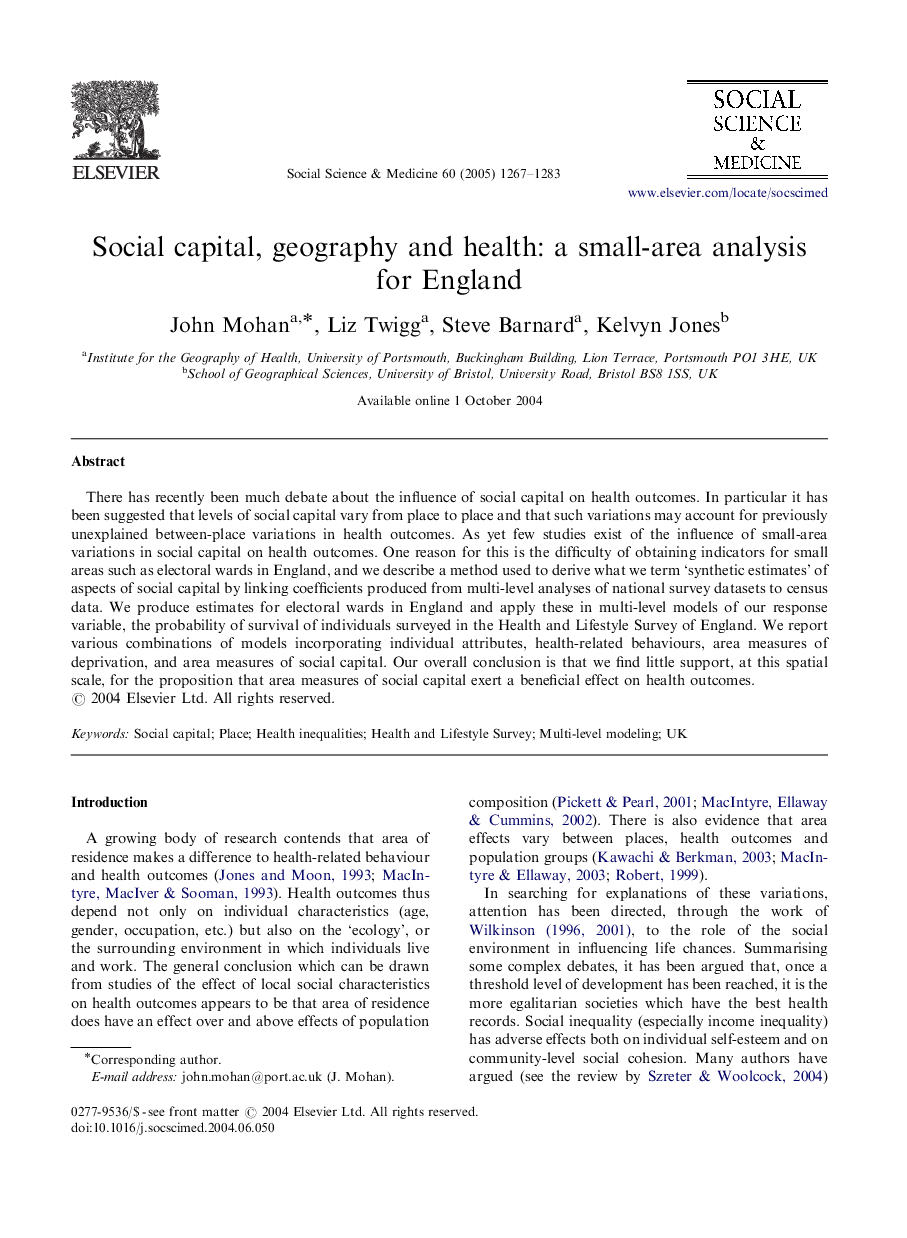| Article ID | Journal | Published Year | Pages | File Type |
|---|---|---|---|---|
| 10473145 | Social Science & Medicine | 2005 | 17 Pages |
Abstract
There has recently been much debate about the influence of social capital on health outcomes. In particular it has been suggested that levels of social capital vary from place to place and that such variations may account for previously unexplained between-place variations in health outcomes. As yet few studies exist of the influence of small-area variations in social capital on health outcomes. One reason for this is the difficulty of obtaining indicators for small areas such as electoral wards in England, and we describe a method used to derive what we term 'synthetic estimates' of aspects of social capital by linking coefficients produced from multi-level analyses of national survey datasets to census data. We produce estimates for electoral wards in England and apply these in multi-level models of our response variable, the probability of survival of individuals surveyed in the Health and Lifestyle Survey of England. We report various combinations of models incorporating individual attributes, health-related behaviours, area measures of deprivation, and area measures of social capital. Our overall conclusion is that we find little support, at this spatial scale, for the proposition that area measures of social capital exert a beneficial effect on health outcomes.
Related Topics
Health Sciences
Medicine and Dentistry
Public Health and Health Policy
Authors
John Mohan, Liz Twigg, Steve Barnard, Kelvyn Jones,
